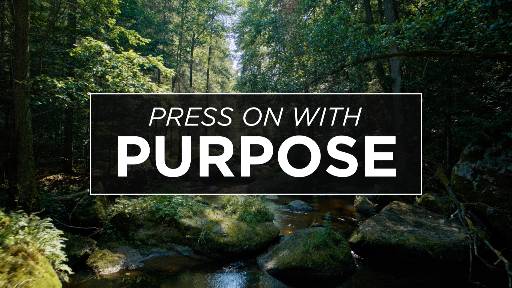-
It's A Lengthy Race Series
Contributed by Russ Barksdale on Oct 30, 2018 (message contributor)
Summary: So how do you garner and foster endurance? Endurance is built by repetition, Endurance is increased by pushing our limits, Endurance is fueled by our commitment to finish strong.
It’s a lengthy race. Hebrews 12:1-3
So how do you garner and foster endurance?
1. Endurance is built by repetition
2. Endurance is increased by pushing our limits
Man’s extremities are God’s opportunities.
3. Endurance is fueled by our commitment to finish strong
“For you need endurance, so that after you have done God’s will, you may receive what was promised.” Hebrews 10:36
Turn to Hebrews 12:1-3 We continue this series we’re calling RUN. It stands for aRe yoU iN (graphic). Are you in the race? Are you in it to win it? Back when American Idol was on Randy Jackson(pic) would say of a really good candidate, “She’s in it to win it!” If you’re a Christ-follower, God has called you to be a runner; to run the most important, life-changing, amazing race you could ever be a part of…are you in it to win it? Are you in?
As we’ve studied this beloved passage, we’ve seen that this race is a worthy race: Worthy because the saints before us have lighted the way by their faith and have made great sacrifices, even to the point of death, to deliver the baton to this generation. It’s worthy because the race for each of us began when we surrendered to Christ and the nature of the gospel is that it radically saves and radically changes us. And it’s a worthy race because God Himself has charted out a particular path for each one of us and He calls you, He calls me, He calls us to run the race harder, faster, better than we ever have before.
It’s also a challenging race. In order to run it well, we have to lay aside all distractions. V.1 says, “lay aside every hindrance and the sin that so easily ensnares us.” That’s a challenge in this day and age. So many distractions. So many activities that we can invest time, talent and treasure that are good—but not best. And the good gets in the way of the best—particularly for the person who wants to run the race well. If you’re running in a 5k or training for a marathon, you can’t go to Babes very often. You sacrifice the good in order to achieve great.
And this morning we drill down on one more aspect of the race God has called us to: not only is this race a worthy race and a challenging race, but it is also a lengthy race. It’s not a sprint. It’s not something you do for awhile and then quit. This is a race that begins the moment you surrendered your life and continues until you meet Jesus as the finish line.
I wonder this morning, how long have you been running the race? If you’ve been running this race for less than 5 years, stand up. Sit. If you’ve been running it from 5- 20 years, stand up. Sit. If you’ve been running it from 20-30 yrs, stand. Sit. If you’ve been running it for 30-50 yrs, stand up. Sit. If you’ve been running longer than 50, stand up. Sit.
This is a long race. And to complete any lengthy race, you must, you must have endurance. So let’s talk about endurance this morning. One of the cultural maladies we fight in 21st century America is that we avoid discomfort, right? This is why I think that comfort has become the predominant idol or god in our culture today. We will do anything to avoid discomfort. So many of us then pursue the idol of comfort. We surround ourselves with comforts: climate controlled houses—if it gets 1 degree too hot, we are like, “Why is it so hot. Oh, it’s set on 74, I’m going to turn it down to 73!” We have climate controlled houses, climate controlled cars…we even have climate controlled storage units to store our stuff in because we’re so addicted to the accumulation stuff our 2000, 3000 sq ft houses can’t accommodate it all.
Why don’t we exercise every day? We don’t want to get out of bed, we don’t want to walk in the heat or the cold or the rain or whatever. We avoid discomfort and that short-circuits endurance.
We also are now an instant society; a push button, get it now, don’t want to wait, immediate satisfaction culture. When I was a kid, most larger purchases were done on what they called lay away, right? You’d go into sears, when there was a Sears, and put money down on a teather ball set or a bicycle and then you’d keep making payments on it till you paid it off and took possession of it. Now you just put down the credit card and get what you want when you want --if you can’t afford it. Amazon will get whatever we want where ever we are the next day.

 Sermon Central
Sermon Central

